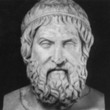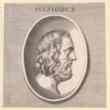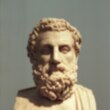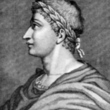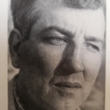The Iliad
Description
More Details
Erni, Hans
Fagles, Robert
Fitzgerald, Robert,1910-1985
Green, Peter,1924- translator., trl
9780140440140
9780140275360
9780872203525
9780374174415
9780385059411
9781439163375
019932610
9780140445923
038505940
9781620117453
9780451627230
9781324001812
9781402517587
9780374529055
9780199326105
9780679410751
9780062046277
9781324001805
9780760734759
9780520281417
9780872203532
Table of Contents
From the Book
Similar Titles From NoveList
Published Reviews
Choice Review
Starting with the translator's preface, which clarifies several Greek terms, McCrorie (English, Providence College) addresses the characterization and function of some of the main figures and discusses the role of the gods in the epic. He states, "I see both the Iliad and the Odyssey as enhancing the best in a social crisis." Cook (classical studies, Trinity Univ.) offers a five-part introduction: "The Iliad as Oral Poetry," "The Hero," "Homeric Society," "Mythological Background," and "Synoptic Analysis." The bibliography and suggested further reading follow. Notes by Cook, with Cardiff and Trevino (both classical studies, Trinity Univ.), follow the translation, where diamonds mark the lines' notes. A concluding section, "Names in the Iliad," provides the first appearance of names in the poem's text and offers spellings and pronunciations that are "close to the Greek and follow[s] Homer's meter." The energetic and rhythmic translation is quite faithful to the original. Despite copious notes, however, the Greek-less reader may not always get the full sense of certain lines. Summing Up: Highly recommended. Upper-level undergraduates, graduate students, and researchers/faculty. H. M. Roisman Colby College
Booklist Review
*Starred Review* One of the most successful contemporary translators, Mitchell filled the latter third of the twentieth century with readable and popular English versions of the core texts of modern spirituality the Tao, Job, Genesis, the Psalms, and, in imitation of Jefferson's Life and Morals of Jesus, the Gospels. In the twenty-first century, and after a pendant to his previous work in the form of the Bhagavad Gita (2002), he turned to the world's literary urtexts, Gilgamesh (2004) and now the archetypal and still greatest war story, Homer's Iliad. And he does it proud, well enough, perhaps, to displace the more archaically faithful Lattimore, the more exhaustive Fagles, and the loftier-toned Fitzgerald verse translations in many classrooms as well as the Rieu and Rouse prose translations in common readers' hearts. He deletes all the obvious and most likely interpolations, including all of book 10 (the ruthless night raid led by Diomedes and Odysseus). He dispenses with the stock epithets so beloved of deprecating wits rosy-fingered dawn, fleet-footed Achilles, and so forth. Striving for the speed and plainness that Matthew Arnold considered Homeric essentials, Mitchell avoids highfalutin vocabulary and devises a five-beat, 11-to-15-syllable line (rhymeless, of course, but otherwise reminiscent of the fourteeners of George Chapman's Elizabethan Iliad, which so impressed John Keats) that sears through the violence of battle and godly spats, thoughtfully glides in such affecting intimate scenes as the parting exchange between Hector and Andromache, and leaps and tumbles with the energy of nature in the great epic similes. In Mitchell's hands more than most before, it seems, the similes ground the poem in nature, merging the fates of humans and those of the world's other creatures. In the introduction, which, like most introductions, should be read last, Mitchell conclusively points to Homer's unbiased purity of observation and calls it love. What, indeed, a lovely story this is, a good one to launch a civilization.--Olson, Ray Copyright 2010 Booklist
Library Journal Review
Mitchell, who has translated seminal books from many different cultures, turns his attention to the Greek epic. Although the story is abridged in places, Mitchell's poetry is evocative and modern, making the text accessible to new listeners. He introduces the production over the course of several discs, and while clearly passionate about his subject, he is not a polished speaker. However, when Alfred Molina begins narrating the actual translation, listeners will be enthralled. Molina has a remarkable sense of timing and voices the characters with great authority and verve. He is forceful and ironic and beautifully conveys the tragedy of this classic tale of the Trojan War. VERDICT There are enough modern translations of Homer's work to meet a variety of tastes, but this recording probably should be in every library. ["This version joins that of Fagles for readers who want a good reading version of The Iliad," read the review of the Free Press hc, LJ 1/12.-Ed.]-B. Allison Gray, Santa Barbara P.L., Goleta Branch, CA (c) Copyright 2012. Library Journals LLC, a wholly owned subsidiary of Media Source, Inc. No redistribution permitted.
Kirkus Book Review
A bloody tale of ancient war and grief comes to vibrant life in modern-day English. While, in 2018, Wilson was the first woman to translate Homer's Odyssey into English, her Iliad is the second by a woman in the past 10 years, following Caroline Alexander's in 2015. The new work, like her well-received Odyssey, is a hefty package of more than 700 pages, with a highly informative introduction, maps, textual notes, genealogies, and a glossary. Wilson has again presented a Homer that sings, in sprightly iambic pentameter and pellucid language that avoids ponderosities like, well, ponderosities and pellucid. It's repetitious, yes. The last phase of the Trojan War alternates between bickering and battles, starting with the fateful falling out of Achilles and Agamemnon that causes the former to withdraw to his tent for the next 400 pages. Thereafter, and often, the gods bicker and the military leaders bicker, and when they're not fighting verbally, the stage is filled with sorties, routs, and one-on-ones, gorefests whose repetition is relieved by some variety in the slaughter, as eyeballs pop out or entrails pour out or heads come off, leaving torsos to tumble to the ground with a clatter of bronze armor. The shortness of Wilson's lines--compared to Alexander's or those in the popular translation by Richmond Lattimore--abetted by her unfussy diction and lyricism, are easy on the reader's eye and seem to help the mind grasp the breadth of Homer's canvas at any given moment while still marveling at details. Part of that bigger picture is a complex ambivalence about war, which can bestow or restore honor but also destroys friends, families, towns--the common bonds from which people and nations build empathy and tolerance. That message is clear in the closing scenes, as Achilles grieves for his lifelong companion, Patroclus, and Troy mourns Hector. A masterful, highly readable rendering of the Greek classic. Copyright (c) Kirkus Reviews, used with permission.




























